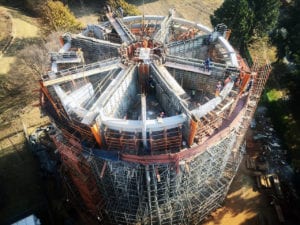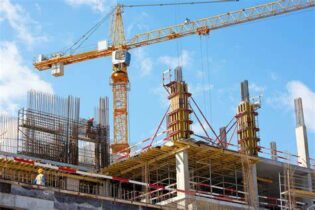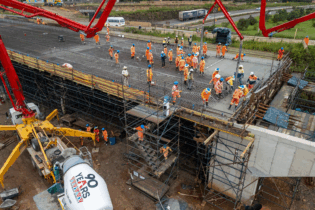Covid-19 may have thrown the world off balance, but it has also opened the door to a smarter way of working and delivering construction programmes more efficiently, says Nonkululeko Sindane, CEO of Mariswe. A prime example is the recent launch of Mariswe’s Strategic Projects Unit.
The local construction industry has seen a sustained decline in infrastructure investment since the boom leading up to the 2010 FIFA World Cup. This has resulted in the closure of many companies and massive job losses, adding to an already dire unemployment situation, particularly among the youth, as well as poverty and inequality. Some companies in our industry restructured, while others diversified. Hope was somewhat restored by President Cyril Ramaphosa’s SONA speech on 13 February, followed by Minister Tito Mboweni’s budget on 26 February 2020 – both of which suggested that long-anticipated investment in infrastructure was imminent. In addition, infrastructure entities such as Sanral started to issue substantial tenders, adding to renewed hope for the industry. “However, by March 2020, Covid-19 had hit our shores and put a dead stop to any hope of imminent investment in infrastructure,” says Sindane. “We are now challenged to think and do things differently to survive the inevitable economic meltdown.” A leading civil engineering consulting company with strong project management and infrastructure planning experience, Mariswe has served South Africa and parts of Africa for 48 years.Taking the initiative
Mariswe underwent a significant restructuring process in 2019 aimed at improving its value proposition to clients, with leaner but more focused resources. “I believe the ability of our leadership team to make tough calls has enabled Mariswe to react appropriately not only to the challenging business environment, but also to Covid-19, which was not part of the plan at that time,” says Sindane. Mariswe’s South African staff commenced working remotely a week before the government imposed the lockdown on 27 March. This was facilitated by the modern and seamless ICT systems developed by Mariswe over several years to support efficient workflow between its 10 South African offices and colleagues working on projects in other countries.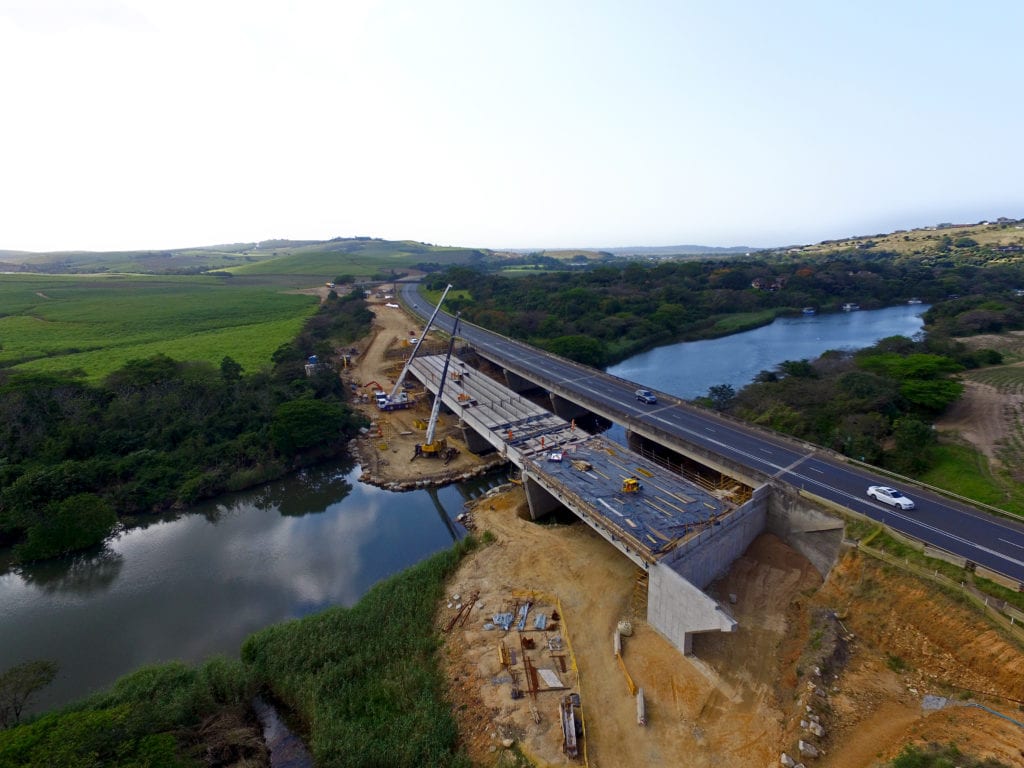
A change in strategic focus
The courage to make quick and sometimes difficult decisions is keeping the company in tune with changing market needs. “This has included some management changes in recent months, including bringing younger professional engineers who have trained and grown with Mariswe on to the board to add to the quality of its strategic decision-making,” Sindane explains. “We make significant investments in new talent and strive to retain all our young professionals. To improve the gender balance in our leadership and encourage diversity, we focus on assisting young women who have achieved professional registration in rising to senior positions,” she continues. Transformation initiatives taken over time continue to positively change the face of Mariswe and the company retained its BBBEE Level 1 status for the third year in a row at the end of 2019; however, Sindane warns that the shortage of work in the civil engineering consulting sector threatens progress in transformation. Looking to the future, she adds that the social and economic mayhem caused by Covid-19 has already reduced funds budgeted for infrastructure. This situation will continue to be the greatest challenge to economic growth and equality in South Africa. The lack of access to clean water and adequate housing to self-isolate at home has magnified the dangers of poor infrastructure for the most vulnerable in our society. Sindane believes the public sector must create enabling conditions for the private sector to play a more active role in improving South Africa’s infrastructure because government cannot do this alone.
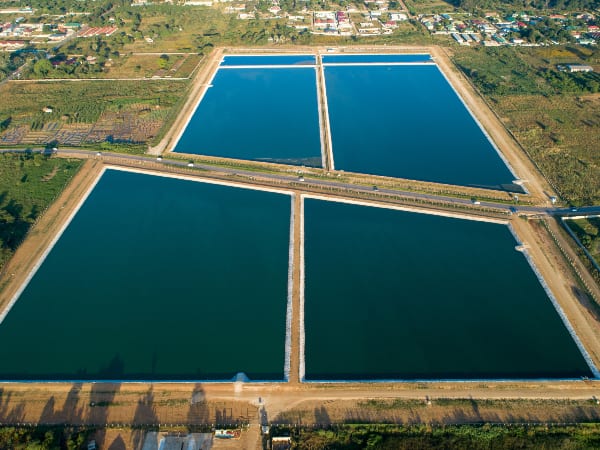
Creating opportunities
“In this environment, our sustainability as a firm depends on finding new projects. And where we cannot find them, we must create them ourselves. We need to leverage our 48 years of experience, our professional and technical competencies, and the Mariswe brand to grow our business by providing integrated services throughout the infrastructure value chain,” says Sindane. Mariswe has completed significant, complex water projects in South Africa, Tanzania and Zambia, among others, and is currently executing output- and performance-based road contracts in Lesotho and Ghana. These competencies will help the firm as a springboard for new services.Strategic Projects Unit
“The next step is to broaden our focus so that we become not only consulting engineers, but also a supplier of solutions,” Sindane explains. “To achieve this vision, we have launched a new business unit known as the Strategic Projects Unit (SPU), led by Rod Stewart, who also heads our Management Services Division. The SPU will work alongside our current offerings in our Transportation, Water and Sanitation, Structures, Management Services and Infrastructure Planning divisions.” The SPU seeks not only to capitalise on sectors where Mariswe has a significant proven track record, but also to diversify its client base and business offerings by pursuing new opportunities from non-traditional sources such as energy, ICT, mining and agriculture.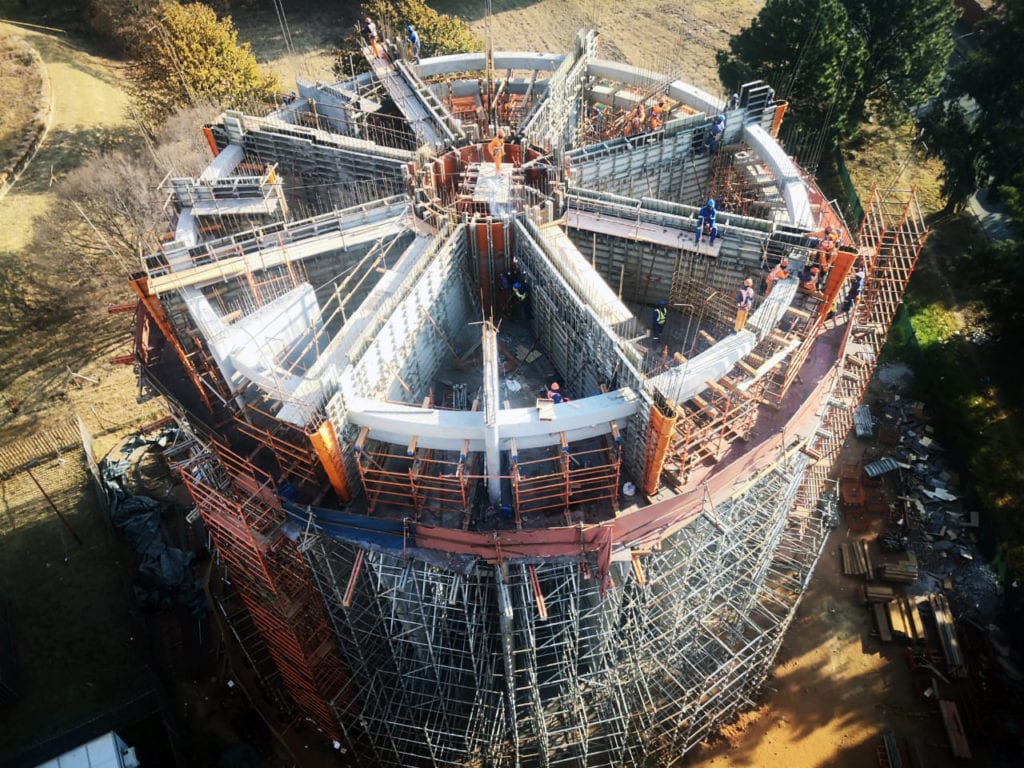
Relevant contract methodologies
In response to the demand for more innovative solutions in tendering for public sector civil and structural consulting engineering project work, Mariswe has gained significant expertise in specialised contract forms, such as PPPs, which are being touted as one way to move forward with major infrastructure projects in South Africa. A current example is an exciting project in the City of uMhlathuze, a key economic hub in KwaZulu-Natal incorporating Richards Bay, whose port handles approximately 60% of South Africa’s seaborne cargo. The City of uMhlathuze has prioritised the treatment and reuse of wastewater, which is readily available in large quantities, and Mariswe was appointed first to conduct a feasibility study and subsequently as a transaction advisor to procure a PPP agreement. The project entails the collection and treatment of domestic and industrial wastewater from the Richards Bay and Empangeni areas, as well as the distribution of the reuse water to industrial offtakers in and around Richards Bay. It is funded by the City of uMhlathuze and the Development Bank of Southern Africa. “We are not sitting back and waiting for work to come to us. Instead, we are making sure we have the teams, the expertise, the out-of-the-box thinking and the vision to help South Africa and Africa develop the sustainable infrastructure needed for its people to survive and thrive,” Sindane concludes.

